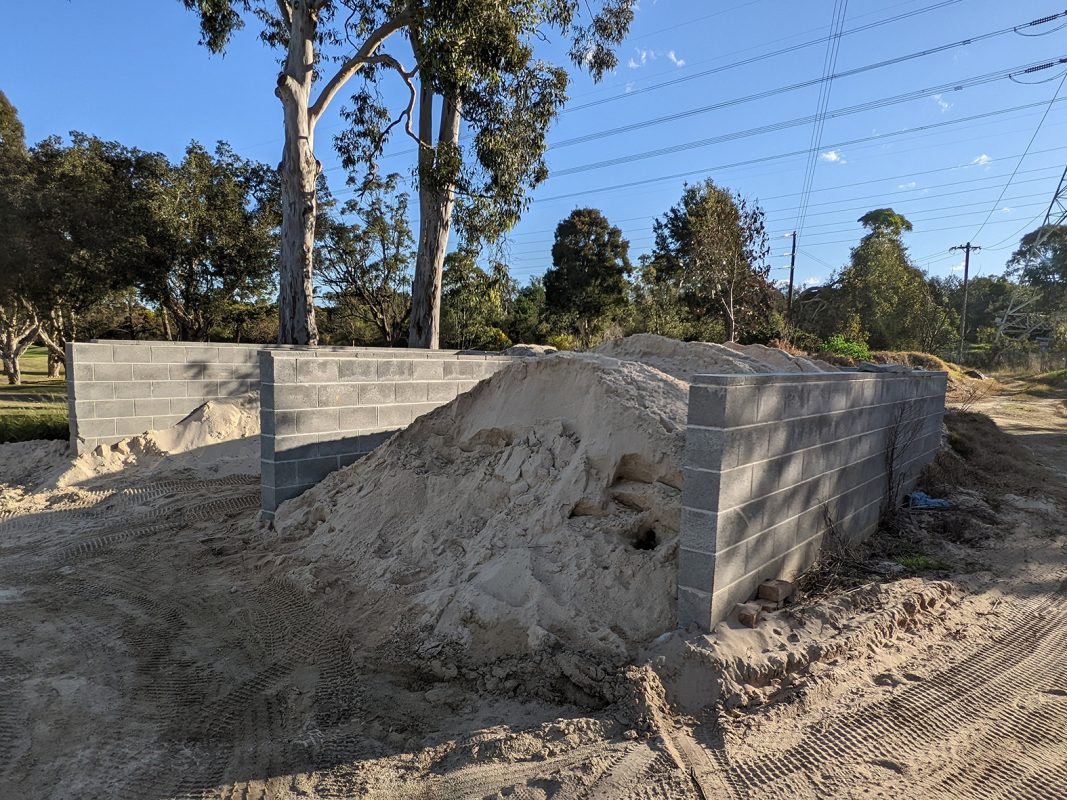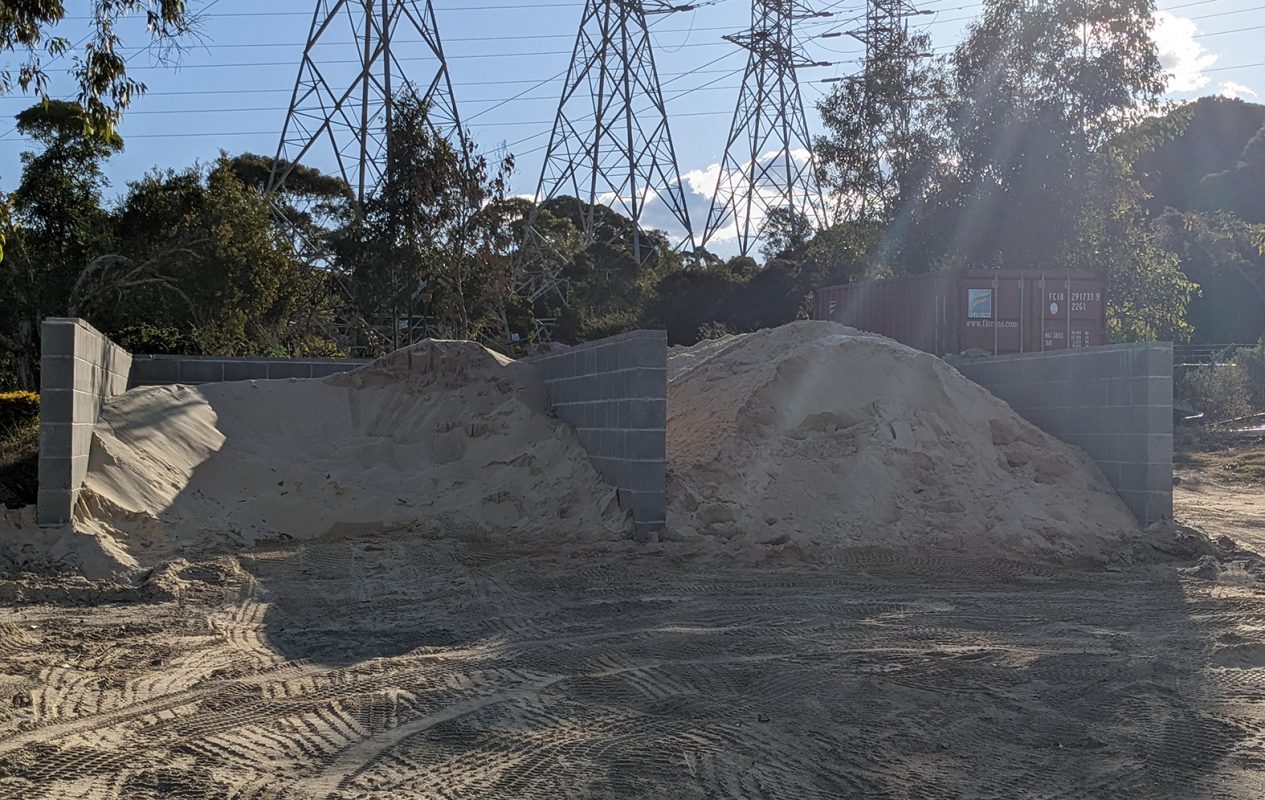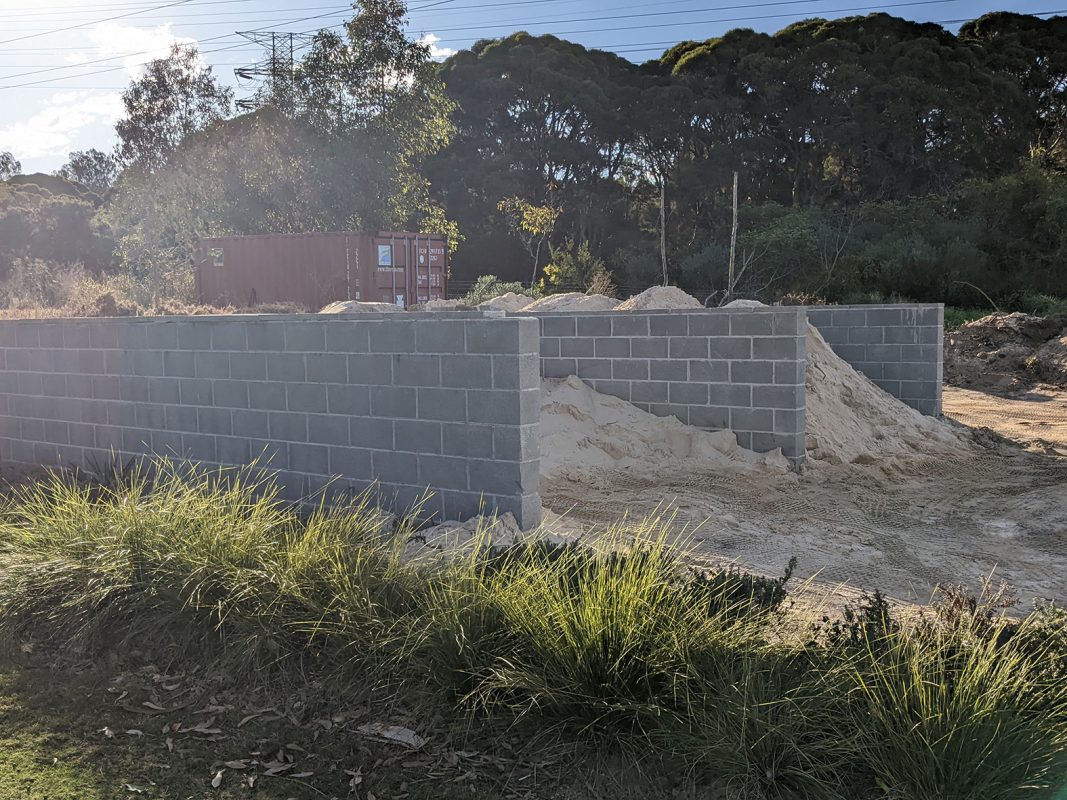Concrete rubble from demolition sites holds immense potential for recycling and transforming into various innovative products.
The following is a short list of some of the products concrete rubble can be converted and recycled include:
1. Crushed Aggregate:
Concrete rubble can be crushed into smaller pieces to create recycled aggregate. This material is a sustainable alternative to natural aggregates and can be used in new construction projects for roads, pathways, and foundations.
2. Fill Material:
Crushed concrete can be used as fill material in construction projects. It’s an eco-friendly option for filling voids, creating barriers, or levelling uneven surfaces, reducing the need for using virgin materials like gravel or sand.
3. Base Material for Roads:
Recycled crushed concrete can be processed into a base material for road construction. This material provides excellent stability and strength, making it suitable for use in road bases and sub-bases.
4. Erosion Control:
Crushed concrete rubble can be used in erosion control applications. It helps prevent soil erosion in embankments, slopes, and landscaping projects because it compacts and stabilises the ground.
5. Precast Concrete Retaining Wall Blocks or Pavers:
Recycled concrete can be reprocessed and moulded into new concrete blocks or paving stones. These products retain the durability of concrete while reducing the environmental impact by utilising recycled materials.
6. Concrete Bricks:
Crushed concrete can also be utilised in the manufacturing of concrete bricks, which find applications in construction for walls, pavements, or retaining structures.
7. Subgrade Improvement:
In some cases, processed concrete rubble can be used to improve subgrade conditions in construction projects. It can be used to stabilise soil and enhance the load-bearing capacity of the ground beneath structures.
8. Landscaping and Decorative Uses:
Crushed concrete can be used decoratively in landscaping projects. It provides a textured, aesthetically pleasing surface for walkways, patios, or garden paths.
9. Pipe Embedment Material:
Recycled concrete can serve as a material for pipe embedment, offering stable support and protection for underground pipes and utilities.
10. Artificial Reefs:
In coastal areas, recycled concrete rubble can be used to create artificial reefs. These structures promote marine life by providing habitats for various aquatic species.
The versatility of recycled concrete rubble allows it to be repurposed into various construction and landscaping materials. By recycling concrete debris from demolition sites, these innovative applications contribute to sustainable construction practices, reducing waste and conserving natural resources.

Benefits of Using Recycled Precast Concrete Retaining Wall Blocks to Build Storage Bays on Golf Courses
Interlocking concrete wall block-based storage bays are versatile for various storage needs, especially for bulk materials. These bays offer a multitude of uses and adaptability that make them an ideal choice for storing a wide array of materials. Their flexibility allows users to modify and customise the storage spaces according to specific requirements.
The strength, durability, and eco-friendly nature of these precast concrete retaining wall blocks eliminate the need for traditional foundations, widening their application across diverse storage demands. Whether at job sites, factories, or warehouses, these storage bays serve as efficient repositories for numerous materials, including aggregates like sand, gravel, and crushed stone, as well as other dry bulk substances such as wood, waste, salt, and soil.
Moreover, these storage bays in agricultural and farming settings are valuable for housing commodities like silage and grain. Additionally, they play a crucial role in establishing segregation bays for material recycling, contributing to sustainable practices and resource utilisation.
Various names, such as commodity storage, aggregate bays, or bunker walls, might recognise these storage bays. Still, their core functionality remains consistent: providing efficient storage through interlocking block systems. Their versatility makes them adaptable to various industries and purposes, ensuring seamless organisation and safekeeping of bulk materials.
The precast concrete retaining wall blocks used to build storage bays offer a durable, flexible, and sustainable solution for various storage requirements across industries. Their adaptability and robust construction make them indispensable for creating organised storage spaces tailored to different materials, providing a reliable and efficient storage solution in various settings.
A1 Concrete Recyclers’ mission doesn’t stop there, though!
Recycle, Save and Repurpose
• Bricks
• Concrete
• Roof Tiles
• Concrete & Bricks Mixed
• Soil or Sand
If you have materials you are wondering if we can accept,
give us a quick phone call on 02 9603 5555 or 0433 958 977.


